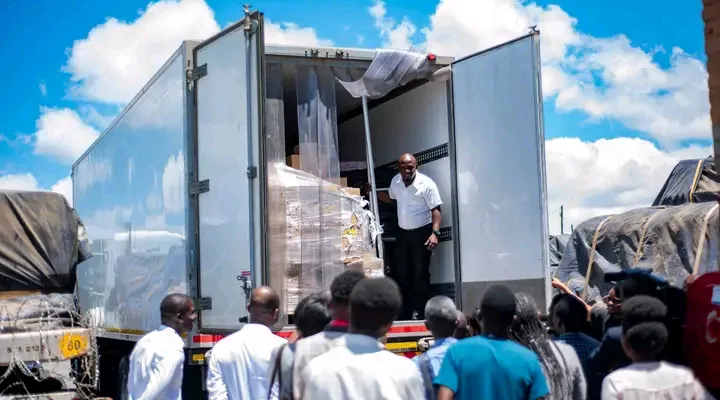
The Malawi Revenue Authority (MRA) says their Inland Examination Centres in Blantyre and Lilongwe are playing a significant role on increased revenue collection on containerized imports.
This is according to MRA Deputy Commissioner responsible for Blantyre Inland Examination Centre, Moses Masina who was speaking on Thursday March 21, 2024 when journalists toured the facility to appreciate the examination process.
Masina said for instance, the Blantyre Inland Examination Center which was established in 2022, do physical inspections of containers that enter the country through Mwanza, Dedza as well as the Songwe borders.
He further said because their officers are given more time to do the physical inspections to verify what has been declared at the borders and ensure that there is compliance in terms of the customs and excise law, the facility has helped in increasing revenue collection.
“So when the goods arrive here, our officers cross check the quantities, qualities of the declarations at the same time. What we have seen after the establishment of the Inland Examination Center from 2022, is an increase in terms of revenue collection. Because we give our officers room that they can conduct the inspections in an appropriate environment, results are able to come through.
“At the same time, the Inland Examination Center has made it possible that we can have minimal time in doing inspections because we have space here but we also have tools like forklifts that assist us to do the examinations in timely manner,” said Masina.
He then mentioned technical smuggling as one of the challenges haunting the Authority as some importers continue to under declare their goods and falsify invoices in trying to pay less tax than their imported goods.
“Technical smuggling is a big issue in MRA, and one of the reasons why we established this inspection Center is to mitigate that practice. We have noted people under declare goods and also falsify their invoices. So this inland examination center has brought in accountability to make sure that whatever goods are being brought here are inspected and verified,” added Masina.
He added that when the inspection team detects an under declaration or falsification of invoices, they issue penalties and also demand their owners to account and pay for the goods that they did not pay duty at the borders.














